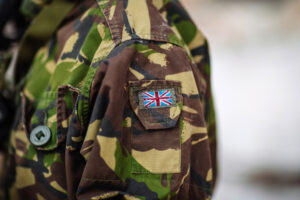Government sends in 1,200 troops to replace workers


Around 1,200 members of the military and 1,000 civil servants are being sent in by the government to cover striking ambulance drivers and Border Force staff.
The staff will be deployed to minimise disruption throughout the rest of the month as more key sector workers go on strike.
Up to 10,000 ambulance staff will go on strike on 21 December and 28 December, adding to the UK’s growing December disruption.
Airports are also set to come to a standstill as border force staff walk off the job, with the government hoping army personnel can help ease expected congestion.
Posties, nurses, bus drivers and rail workers will also go on strike during the Christmas period.
Union bosses have complained that military personnel are not adequately trained to fill in for striking workers.
Number 10 said this week that military staff will not be allowed to run red lights when filling in for ambulance workers.
Admiral Sir Tony Radakin, the UK’s chief of defence staff, warned the government against over-relying on the military during strikes.
“We’re not spare capacity. We’re busy and we’re doing lots of things on behalf of the nation – we’ve got to focus on our primary role,” he told the Telegraph.
Striking workers are calling for pay rises that match or exceed the UK’s near 11 per cent annual inflation rate.
The government has argued that it will not give pay rises above what was recommended by the public sector pay body.
Cabinet Office minister Oliver Dowden called on union leaders to call off their planned industrial action.
“We are trying to be reasonable, we are trying to be proportionate, we are trying to be fair,” he told the BBC.
Read more:
Government sends in 1,200 troops to replace workers
